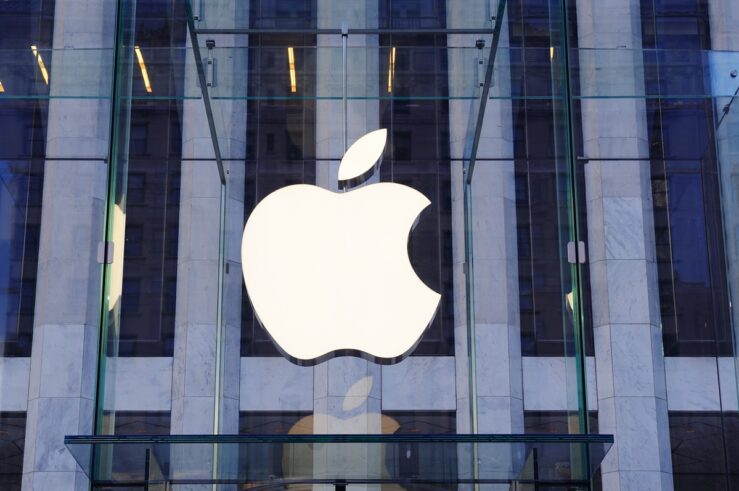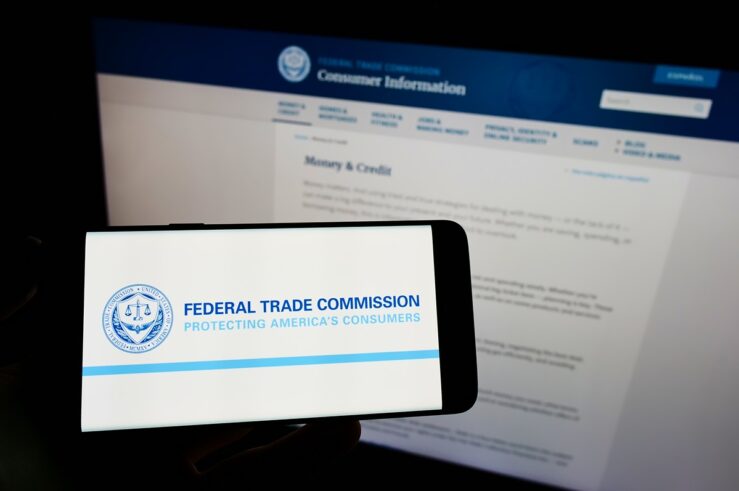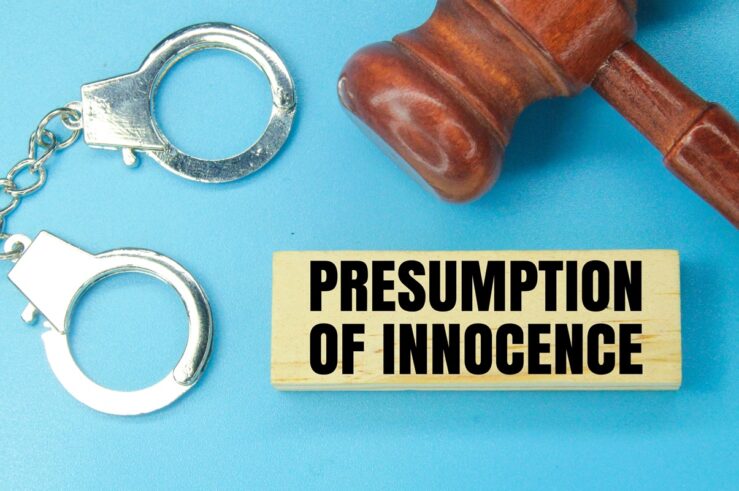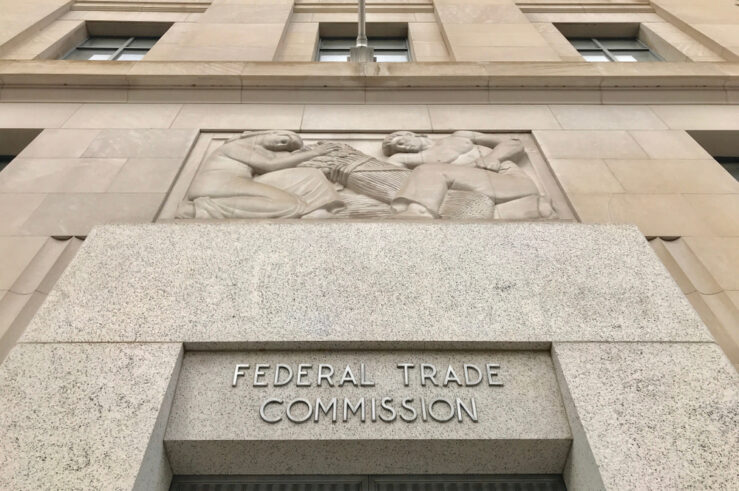Showing results for: “Section 5, Collateral Consequences, and Counting Unicorns”
US v. Apple Lawsuit Has Big Implications for Competition and Innovation
The lawsuit filed yesterday by the U.S. Justice Department (DOJ) against Apple for monopolization of the U.S. smartphone market (joined by 15 states and the District of Columbia) has big implications for American competition and innovation. At the heart of the complaint is the DOJ’s assertion that: [Apple’s] anticompetitive acts include, but are not limited ... US v. Apple Lawsuit Has Big Implications for Competition and Innovation
Antitrust at the Agencies Roundup: Supply Chains, Noncompetes, and Greedflation
The big news from the agencies may be the lawsuit filed today by the U.S. Justice Department (DOJ) and 16 states against Apple alleging monopoly maintenance in violation of Section 2 of the Sherman Act. It’s an 86-page complaint and it’s just out. I’ll write more about it next week. Two quick observations: First, the ... Antitrust at the Agencies Roundup: Supply Chains, Noncompetes, and Greedflation
Systemic Risk and Copyright in the EU AI Act
The European Parliament’s approval last week of the AI Act marked a significant milestone in the regulation of artificial intelligence. While the law’s final text is less alarming than what was initially proposed, it nonetheless still includes some ambiguities that could be exploited by regulators in ways that would hinder innovation in the EU. Among ... Systemic Risk and Copyright in the EU AI Act
Section 214: Title II’s Trojan Horse
The Federal Communications Commission (FCC) has proposed classifying broadband internet-access service as a common carrier “telecommunications service” under Title II of the Communications Act. One major consequence of this reclassification would be subjecting broadband providers to Section 214 regulations that govern the provision, acquisition, and discontinuation of communication “lines.” In the Trojan War, the Greeks ... Section 214: Title II’s Trojan Horse
The Broken Promises of Europe’s Digital Regulation
If you live in Europe, you may have noticed issues with some familiar online services. From consent forms to reduced functionality and new fees, there is a sense that platforms like Amazon, Google, Meta, and Apple are changing the way they do business. Many of these changes are the result of a new European regulation ... The Broken Promises of Europe’s Digital Regulation
The DMA’s Missing Presumption of Innocence
The EU’s Digital Markets Act (DMA) will come into effect March 7, forcing a handful of digital platforms to change their market conduct in some unprecedented ways. The law effectively judges them guilty (with a very limited, formalistic trial), and brands them “gatekeepers” based purely on size. It then sentences them to far-reaching, one-size-fits-all antitrust-style ... The DMA’s Missing Presumption of Innocence
The CFPB’s Misleading Slant on Competition in Credit-Card Markets
In yet another example of interagency cheerleading from the Federal Trade Commission (FTC), Chair Lina Khan recently touted the work of the Consumer Financial Protection Bureau (CFPB) on payments networks: https://twitter.com/linakhanFTC/status/1759962157133726060?s=20 Hmmm, does it? How so? And what ought one to do with that information? A caveat: I’ve spent many years on competition issues, but ... The CFPB’s Misleading Slant on Competition in Credit-Card Markets
Apple Fined at the 11th Hour Before the DMA Enters into Force
Just days before the EU’s Digital Markets Act (DMA) was set to enter into force, the European Commission hit Apple—one of the six designated “gatekeepers” to which the new law will apply—with a hefty €1.8 billion fine for the kinds of anti-steering provisions that will be banned by the DMA, which enters into force on ... Apple Fined at the 11th Hour Before the DMA Enters into Force
The Whole Wide World of Government
First, a bit of self-promotion: the International Center for Law & Economics (ICLE) hosted an excellent panel discussion Feb. 26 on the 2023 merger guidelines. I moderated, but the real attractions were the panelists: Maureen Ohlhausen, Noah Phillips, Bruce Kobayashi, Diana Moss, and Kristen Limarzi. The room was packed, as it should have been. Video ... The Whole Wide World of Government
Will the FTC Scupper the Kroger/Albersons Merger?
The press is abuzz with news about the Federal Trade Commission’s (FTC) Feb. 26 announcement that it would challenge the proposed Kroger/Albertsons mega-supermarket merger, which had been in the works since the fall of 2022. If the FTC succeeds in obtaining a temporary restraining order and preliminary injunction in Oregon federal district court (a big ... Will the FTC Scupper the Kroger/Albersons Merger?
FCC’s Digital-Discrimination Rules: An Open Invitation to Flood the Field with Schlock
A half-dozen lawsuits have been filed to date challenging the digital-discrimination rules recently approved by the Federal Communications Commission (FCC). These cases were consolidated earlier this month and will now be heard by the 8th U.S. Circuit Court of Appeals. This has the hallmarks of a significant case that will almost certainly involve the U.S. ... FCC’s Digital-Discrimination Rules: An Open Invitation to Flood the Field with Schlock
The FTC Should Not Enact a Deceptive or Unfair Marketing Earnings-Claims Rule
Back in February 2022, the Federal Trade Commission (FTC) announced an advance notice of proposed rulemaking (ANPRM) on “deceptive or unfair earnings claims.” According to the FTC: [The Deceptive or Unfair ANPRM was aimed at] challenging bogus money-making claims used to lure consumers, workers, and prospective entrepreneurs into risky business ventures that often turn into ... The FTC Should Not Enact a Deceptive or Unfair Marketing Earnings-Claims Rule
















